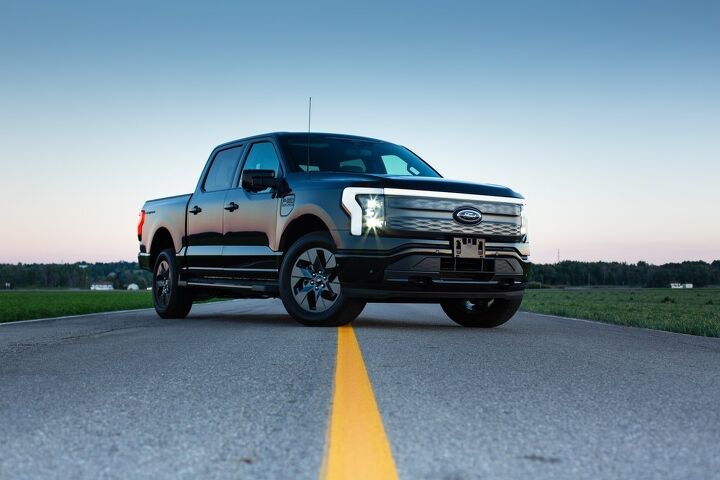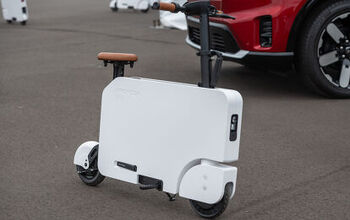From Coast to Coast: Uncovering the Most Loved Cars in Each State
Every state in America has its own unique preferences when it comes to choosing the right vehicle. These preferences are shaped by a variety of factors, including the state's geographical landscape, climate, and lifestyle of its residents. An article by J.D. Power explores the most popular vehicles sold be state.
- Alabama: Ford F-150
- Alaska: Subaru Outback
- Arizona: Toyota Tacoma
- Arkansas: GMC Sierra 1500
- California: Honda Civic
- Colorado: Subaru Forester
- Connecticut: Toyota RAV4
- Delaware: Ford Explorer
- Florida: Toyota Corolla
- Georgia: Chevrolet Silverado 1500
- Hawaii: Toyota Tacoma
- Idaho: Ford F-150
- Illinois: Honda Civic
- Indiana: Chevrolet Silverado 1500
- Iowa: Ford F-150
- Kansas: Chevrolet Silverado 1500
- Kentucky: Ford F-150
- Louisiana: Ford F-150
- Maine: Subaru Outback
- Maryland: Toyota RAV4
- Massachusetts: Honda CR-V
- Michigan: Ford F-150
- Minnesota: Chevrolet Silverado 1500
- Mississippi: Chevrolet Silverado 1500
- Missouri: Ford F-150
- Montana: Ford F-150
- Nebraska: Ford F-150
- Nevada: Toyota RAV4
- New Hampshire: Subaru Outback
- New Jersey: Honda CR-V
- New Mexico: Ford F-150
- New York: Honda CR-V
- North Carolina: Toyota RAV4
- North Dakota: Chevrolet Silverado 1500
- Ohio: Honda Civic
- Oklahoma: Ford F-150
- Oregon: Toyota RAV4
- Pennsylvania: Honda CR-V
- Rhode Island: Honda Civic
- South Carolina: Ford F-150
- South Dakota: Ford F-150
- Tennessee: Chevrolet Silverado 1500
- Texas: Ford F-150
- Utah: Ford F-150
- Vermont: Subaru Outback
- Virginia: Toyota RAV4
- Washington: Subaru Outback
- West Virginia: Ford F-150
- Wisconsin: Chevrolet Silverado 1500
- Wyoming: Ford F-150
The diversity in vehicle preferences across the United States reflects the varied lifestyles, climates, and terrains of each state. From the rugged Ford F-150 in Alabama to the versatile Toyota RAV4 in Oregon, each vehicle serves the unique needs of its local population. Understanding these preferences offers valuable insight into the regional characteristics and priorities of American drivers, emphasizing the importance of a vehicle's functionality, reliability, and adaptability in meeting the everyday demands of life across the country.
This article was co-written using AI and was then heavily edited and optimized by our editorial team.
More by TTAC Staff
Latest Car Reviews
Read moreLatest Product Reviews
Read moreRecent Comments
- W Conrad I'm not afraid of them, but they aren't needed for everyone or everywhere. Long haul and highway driving sure, but in the city, nope.
- Jalop1991 In a manner similar to PHEV being the correct answer, I declare RPVs to be the correct answer here.We're doing it with certain aircraft; why not with cars on the ground, using hardware and tools like Telsa's "FSD" or GM's "SuperCruise" as the base?Take the local Uber driver out of the car, and put him in a professional centralized environment from where he drives me around. The system and the individual car can have awareness as well as gates, but he's responsible for the driving.Put the tech into my car, and let me buy it as needed. I need someone else to drive me home; hit the button and voila, I've hired a driver for the moment. I don't want to drive 11 hours to my vacation spot; hire the remote pilot for that. When I get there, I have my car and he's still at his normal location, piloting cars for other people.The system would allow for driver rest period, like what's required for truckers, so I might end up with multiple people driving me to the coast. I don't care. And they don't have to be physically with me, therefore they can be way cheaper.Charge taxi-type per-mile rates. For long drives, offer per-trip rates. Offer subscriptions, including miles/hours. Whatever.(And for grins, dress the remote pilots all as Johnnie.)Start this out with big rigs. Take the trucker away from the long haul driving, and let him be there for emergencies and the short haul parts of the trip.And in a manner similar to PHEVs being discredited, I fully expect to be razzed for this brilliant idea (not unlike how Alan Kay wasn't recognized until many many years later for his Dynabook vision).
- B-BodyBuick84 Not afraid of AV's as I highly doubt they will ever be %100 viable for our roads. Stop-and-go downtown city or rush hour highway traffic? I can see that, but otherwise there's simply too many variables. Bad weather conditions, faded road lines or markings, reflective surfaces with glare, etc. There's also the issue of cultural norms. About a decade ago there was actually an online test called 'The Morality Machine' one could do online where you were in control of an AV and choose what action to take when a crash was inevitable. I think something like 2.5 million people across the world participated? For example, do you hit and most likely kill the elderly couple strolling across the crosswalk or crash the vehicle into a cement barrier and almost certainly cause the death of the vehicle occupants? What if it's a parent and child? In N. America 98% of people choose to hit the elderly couple and save themselves while in Asia, the exact opposite happened where 98% choose to hit the parent and child. Why? Cultural differences. Asia puts a lot of emphasis on respecting their elderly while N. America has a culture of 'save/ protect the children'. Are these AV's going to respect that culture? Is a VW Jetta or Buick Envision AV going to have different programming depending on whether it's sold in Canada or Taiwan? how's that going to effect legislation and legal battles when a crash inevitibly does happen? These are the true barriers to mass AV adoption, and in the 10 years since that test came out, there has been zero answers or progress on this matter. So no, I'm not afraid of AV's simply because with the exception of a few specific situations, most avenues are going to prove to be a dead-end for automakers.
- Mike Bradley Autonomous cars were developed in Silicon Valley. For new products there, the standard business plan is to put a barely-functioning product on the market right away and wait for the early-adopter customers to find the flaws. That's exactly what's happened. Detroit's plan is pretty much the opposite, but Detroit isn't developing this product. That's why dealers, for instance, haven't been trained in the cars.
- Dartman https://apnews.com/article/artificial-intelligence-fighter-jets-air-force-6a1100c96a73ca9b7f41cbd6a2753fdaAutonomous/Ai is here now. The question is implementation and acceptance.


































Comments
Join the conversation